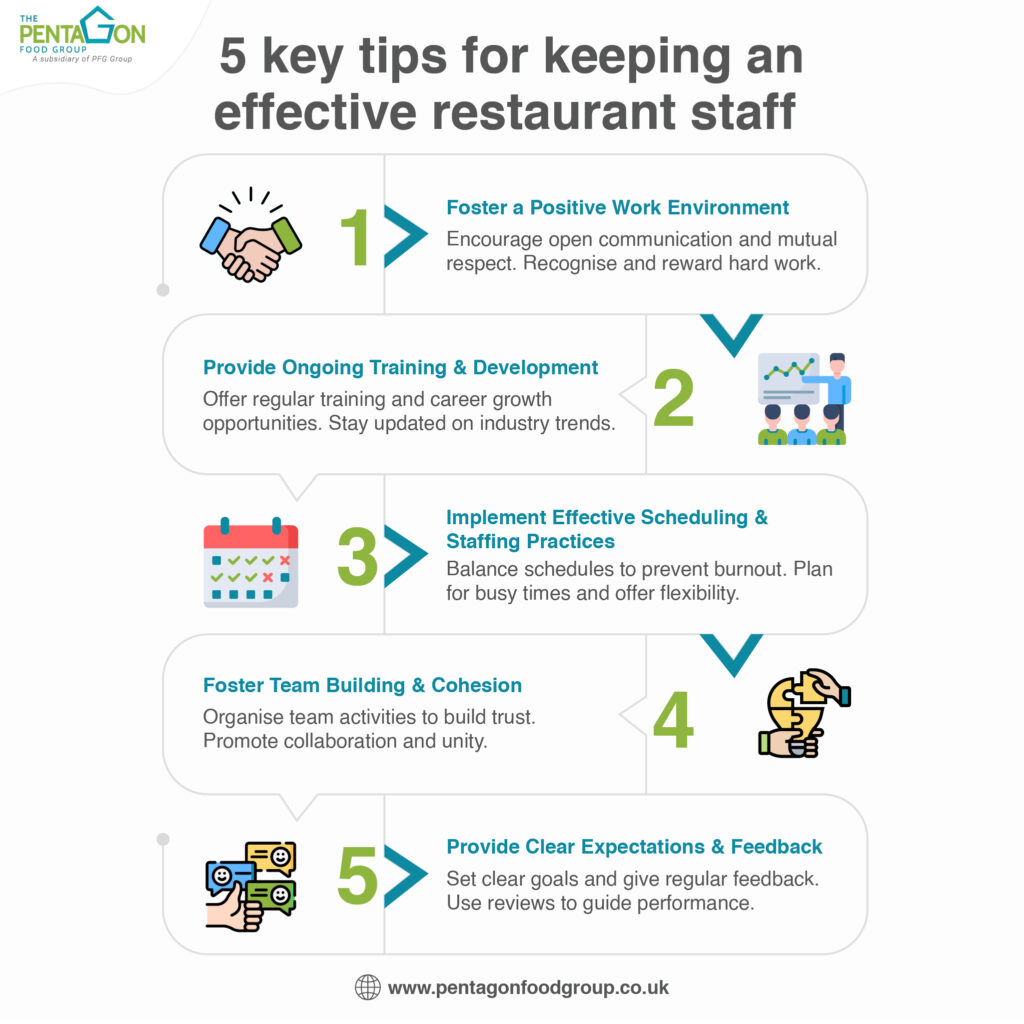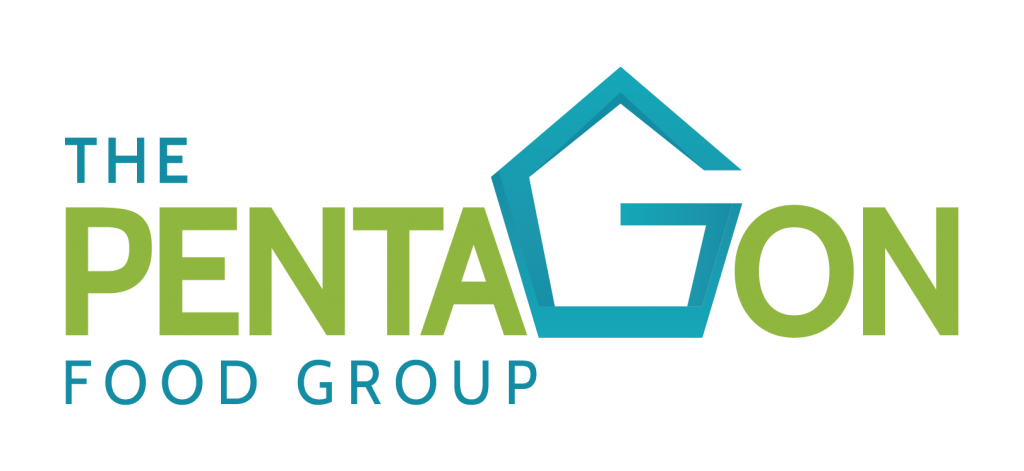In the restaurant industry, your staff’s performance is critical. A skilled, motivated team improves customer experiences. They also boost your restaurant’s success. Trained staff who are enthusiastic and work well together lead to smoother operations. They also lead to happier customers and higher profits. Ensuring your team is effective goes beyond shift and task management. It involves creating a supportive, productive environment that motivates them to excel.

1. Foster a Positive Work Environment
Creating a supportive culture is key for keeping an effective Restaurant Staff. A good work environment boosts teamwork and respect. This is key for good service and a pleasant dining experience. Encourage open communication. Create a culture where staff can share concerns, ideas, and feedback. This helps solve issues quickly and lets staff contribute to success. Also, recognize and reward efforts. Acknowledging hard work and celebrating achievements lifts morale and motivation. Simple gestures, like praise or formal rewards, build the positive atmosphere. They also encourage dedication.
2. Provide Ongoing Training and Development
Regular training is a cornerstone of an effective restaurant staff. Providing ongoing learning helps employees improve skills and stay updated. This boosts performance and readiness for new roles, aiding growth. Clear promotion paths also raise morale and keep staff. Also, knowing trends keeps your team up to date on the latest tech. This keeps your restaurant competitive and innovative. By investing in your staff, you build a more skilled and motivated team.
3. Implement Effective Scheduling and Staffing Practices
Optimizing staff schedules is key for quality service and staff happiness. A good schedule prevents burnout by fairly distributing shifts and managing workloads. Planning for busy times and adjusting coverage ensures smooth operations. It’s also important to support work-life balance. Offering flexibility and meeting individual needs boosts job satisfaction and lowers turnover. By carefully managing schedules and staffing, you build a better, supportive workplace.
4. Foster Team Building and Cohesion
Organising team-building activities can greatly enhance relationships and cohesion within your staff. Team activities boost trust and strengthen bonds, creating a better work environment. Allowing staff to collaborate on projects and during shifts fosters unity and shared goals. Building a community in the team creates a positive atmosphere where everyone feels valued. These efforts improve dynamics, productivity, and job satisfaction.
5. Provide Clear Expectations and Feedback
Setting clear goals and standards is essential for guiding staff performance. It ensures everyone understands their roles and responsibilities. Clearly defined expectations help prevent misunderstandings. It provides a framework for evaluating performance. Offering regular, constructive feedback is equally important. It helps staff identify areas for improvement and recognise their strengths. Conducting regular performance reviews provides an opportunity to discuss progress. So, it set new goals, and address any concerns. Maintain clear communication and provide thoughtful feedback. It will support your staff’s development and contribute to a more effective and motivated team.
Read More: Health and Safety Checklist for Restaurants
Conclusion
Implementing these strategies is crucial for maintaining an effective restaurant staff and ensuring success. Foster a positive work environment to encourage teamwork and job satisfaction. Invest in ongoing training to keep staff updated and improve skills. Optimise scheduling to ensure adequate staffing and reduce burnout. Promote team cohesion by encouraging collaboration and camaraderie among staff. Provide clear expectations and feedback to help staff meet and exceed goals. Regularly assess and refine practices to address issues and enhance performance. Evaluate your current approaches and consider applying these tips. Your input and engagement can significantly improve your restaurant.






